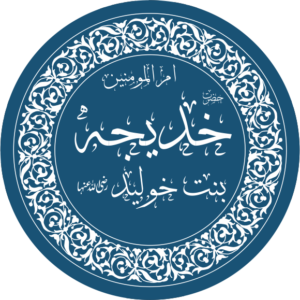
Early Life
Embracement of Islam
Ulama Institute #1
Looking to learn Arabic or memorize the Quran?
Check our Trusted Teachers

Khaalid ibn al-Waleed was born about seventeen years before Islam. His father, Al- Waleed, was one of the most powerful men among Quraysh and in the early days of his youth, Khaalid became one their most powerful leaders. Young Khaalid was always interested in the art of war and was a brave warrior. He was not particularly indulgent in any religious matters and at this early stage of his life he opposed Islam strongly. Islam was frequently under threat from hostile forces that opposed it and Quraysh was one of Islam’s biggest enemies at that time.
In a major clash between the two parties, Quraysh suffered a heavy defeat at the hands of the Muslims at the Battle of Badr. They were very distressed after this major setback since they felt that the Muslims were inferior to their army. Quraysh felt deep humiliation and intended on avenging this defeat. Khaalid shared in their longing to defeat the Muslims. His chance came in the Battle of Uhud as he was one of the commanders of the armies of Quraysh. He played a major role in containing the Muslims on that day and was seen as a hero and prominent figure in Makkah. He was also a commander in the Battle of Al-Khandaq against the Muslims and although Quraysh could not defeat the Muslims, Khaalid played a pivotal role in this campaign.
In the sixth year of Hijrah, the Prophet ﷺ indicated that he wished to venture to Makkah for ‘Umrah. Quraysh opposed this move and ultimately the Muslims did not perform “Umrah. The Treaty of al-Hudaybiyah stipulated that the Muslims had to leave and return for Umrah the following year. This meant that interaction occurred the following year between the Muslims and the Makkans. Many people observed the lifestyle of the Muslims and admired their honesty and manner in which they treated others. Khaalid ibn al-Waleed received a letter from the Prophet upon the former’s return to Madinah in which the Prophet ﷺ questioned Khaalid ibn al-Waleed’s unwillingness to embrace Islam. He acknowledged that false pride stood in his way. When Khaalid arrived at Madinah and announced his acceptance of the faith of Islam, the first thing he asked the Prophet ﷺ was to pray to Allah to forgive him for his earlier aggression against Islam and the Muslims.
Since that time on, Khaalid became a valuable asset to Islam. As a proven leader, Khaalid became one of the greatest leaders in Islam. After hearing about Khaalid’s exploits as commander of the Muslim forces in Syria, the Prophet ﷺ gave him the epithet of “The Sword of Allah”. The sword that had fought against Islam had at last became the Sword of Allah.
In the first encounter between the Muslims and the Byzantine army in the Battle of Mu’tah, three commanders were chosen by the Prophet ﷺ to succeed one another in case of death. It is worth of mentioning here that the muslims army consisted of 3000 soldiers while the Romans were 200.000. All three commanders were killed in battle and when the banner of the army was about to fall, Thaabit ibn Al-Arqam took it to Khaalid ibn al-Waleed. He believed that Khaalid was prepared to lead the Muslim army and knew the strategies of war. Khaalid refused because he felt that Thaabit ibn Al-Arqam was more suited due to the latter’s age and his service to Islam. He only assumed the role at Thaabit’s insistence and the approval of the Muslims. Khaalid was the leader in many battles which ended in victory for the Muslim army.
During the Battle of al-Yarmook, ‘Umar ibn al-Khattaab sent a letter to Khaalid telling him that he was no longer in command of the army. “Umar indicated that Khaalid had been replaced by Aboo ‘Ubaydah. Khaalid responded immediately and continued to fight with the determination and energy that he was renowned for, until the Muslims won the battle. When he was asked about that, he answered that he fought for Allah ﷻ not for ‘Umar. Such was his virtue that he fully understood the reason for removing him from leadership, i.e. that Muslims must see Allah ﷻ as the real cause of all victories.







